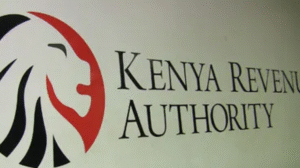The government is reintroducing eight tax measures from the previously repealed Finance Bill 2024, sparking concerns among Kenyans already burdened by a high cost of living.
These tax provisions, initially removed after intense public outcry, are now repackaged into three bills: the Tax Laws (Amendment) Bill, 2024; the Tax Procedures (Amendment) Bill, 2024; and the Public Finance Management (Amendment) Bill, 2024.
The Treasury has published a detailed, two-page explainer in local newspapers to inform the public about the reintroduced measures.
Treasury Cabinet Secretary (CS) John Mbadi claimed these changes would boost economic growth by expanding Kenya’s tax base and help address a pressing Ksh.346 billion fiscal deficit.
Kenya’s Finance Bill 2024 was originally repealed due to overwhelming protests, as citizens took to the streets demanding relief from what they saw as unfair taxation.
When first proposed, the bill included a 16% VAT on fuel and major hikes in digital and other services taxes, which led to public unrest and clashes with authorities.
Protests reached unprecedented levels, with demonstrators breaching Parliament, marking a new height of public discontent with the government’s approach to revenue collection.
The outcry forced President William Ruto to send the bill back to Parliament, signaling an acknowledgment of the socioeconomic toll it was taking on Kenyans.
The government is now introducing eight key tax measures in a more segmented form, addressing issues from the expansion of the digital tax base to mandatory registration for remote workers.
Here’s a breakdown of the measures that are making a comeback:
1. Expansion of the Digital Marketplace Tax; The Tax Laws (Amendment) Bill will now tax a broader range of digital services, including ride-hailing, food delivery, freelance, and rental services.
This expansion aims to include digital operators within Kenya’s tax structure, targeting platforms often used by young entrepreneurs.
Critics argue that the government is adding pressure on small businesses that are still struggling to recover from the economic effects of the COVID-19 pandemic.
2. Minimum Top-Up Tax on Multinationals; A minimum 15% tax rate will apply to multinational companies with an annual turnover exceeding Ksh.100 billion.
This measure is ostensibly aimed at ensuring large corporations contribute a fair share to Kenya’s revenue. However, there are concerns that increased corporate taxes could lead to reduced investments in the country, thereby affecting job creation and economic growth.
3. Increased Pension Contribution Limits; The new proposal raises the maximum tax-deductible pension contribution from Ksh.240,000 to Ksh.360,000 annually, ostensibly to encourage retirement savings.
However, as Kenyans struggle with basic needs due to high inflation, it remains questionable whether most will afford to maximize these contributions.
4. Withholding Tax on Public Entity Supplies; A withholding tax of 0.5% for residents and 5% for non-residents will apply to supplies to public entities.
While this is lower than the previous 3% rate for residents, the policy still adds an extra cost to doing business with the government, which could discourage suppliers from competing in these sectors.
5. Significant Economic Presence Tax; This measure replaces the 1.5% Digital Service Tax with a higher 6% rate for non-resident digital operators.
Treasury CS Mbadi justifies the change as aligning with international tax norms, but many fear this increase could discourage foreign companies from offering digital services in Kenya, thereby limiting options for consumers.
6. Tax on Infrastructure Bond Interest; Interest earned from infrastructure bonds, previously tax-free, will now face a 5% tax for resident investors, though foreign investors





















Add Comment